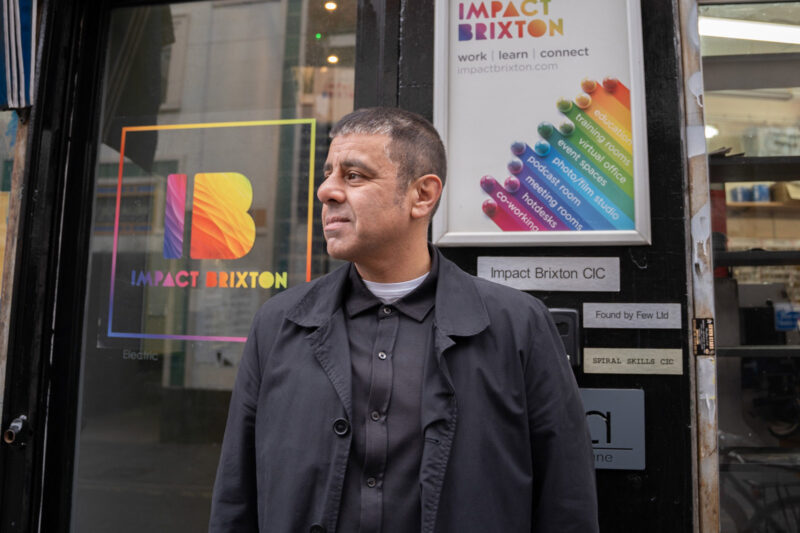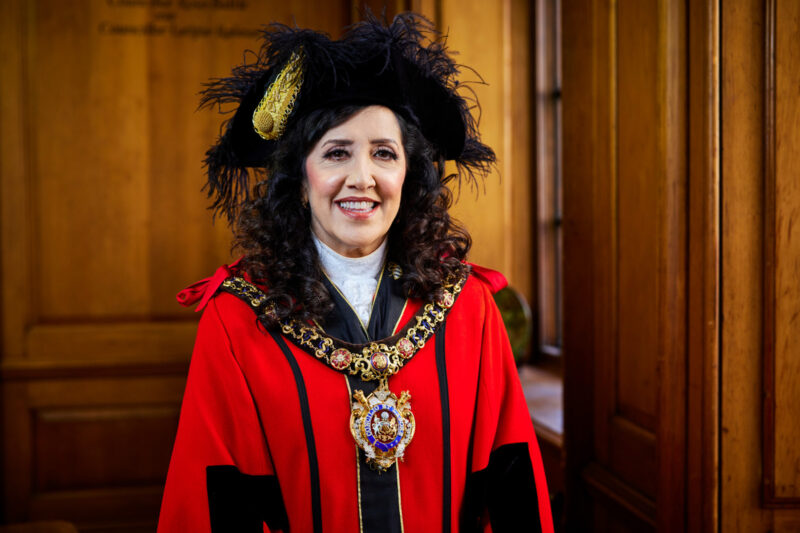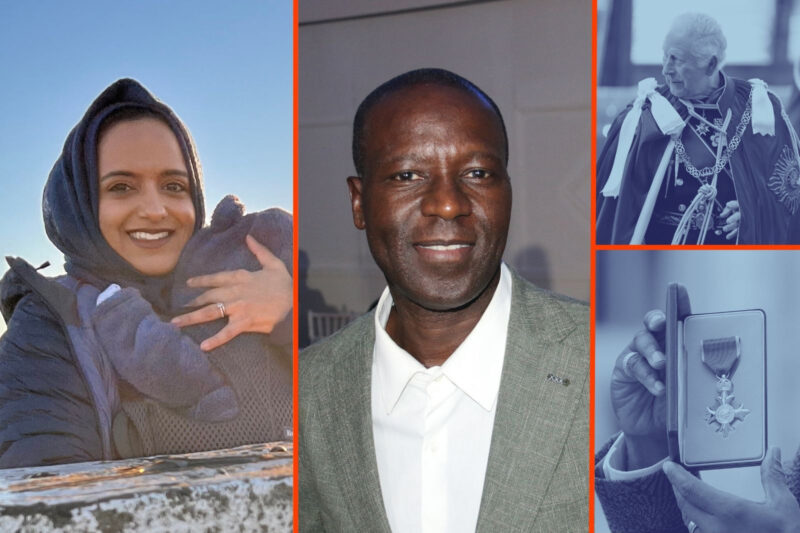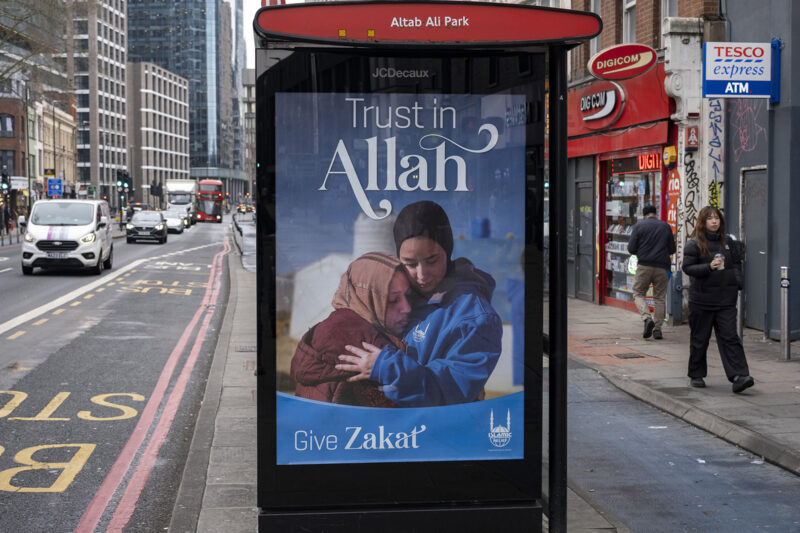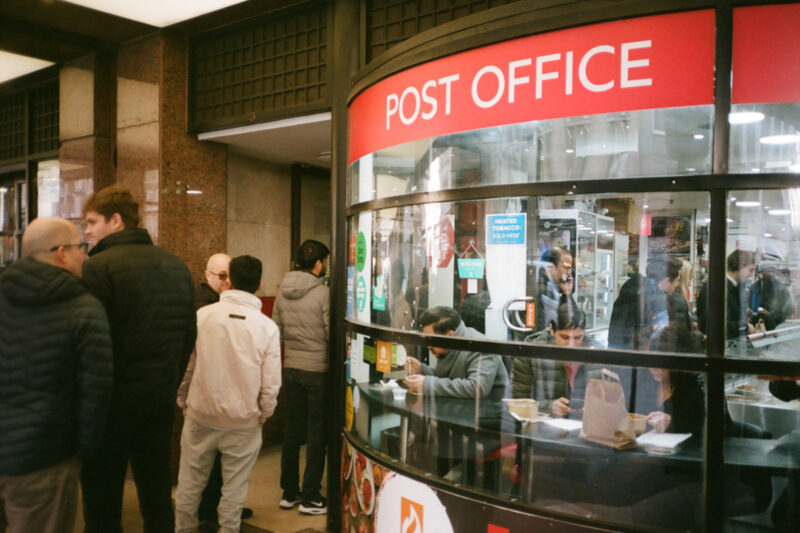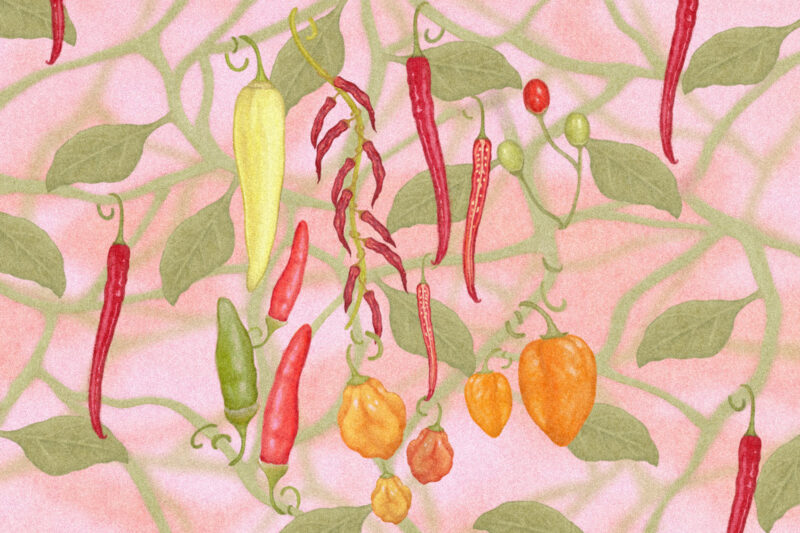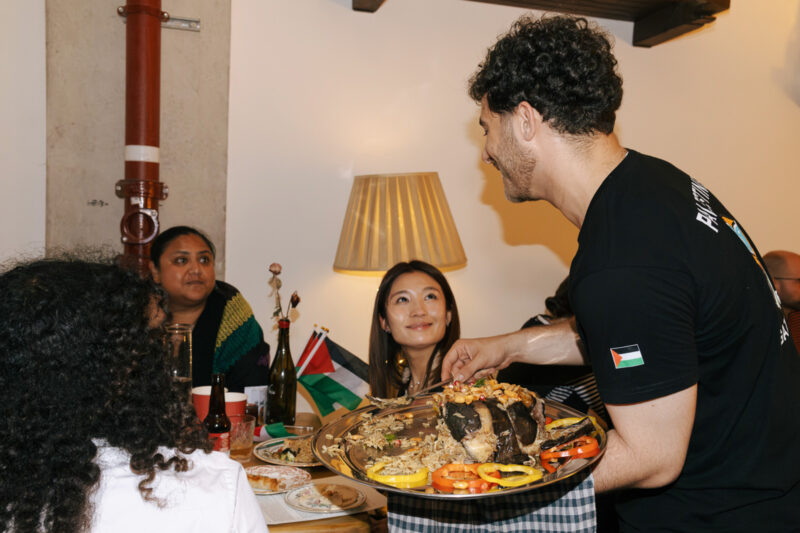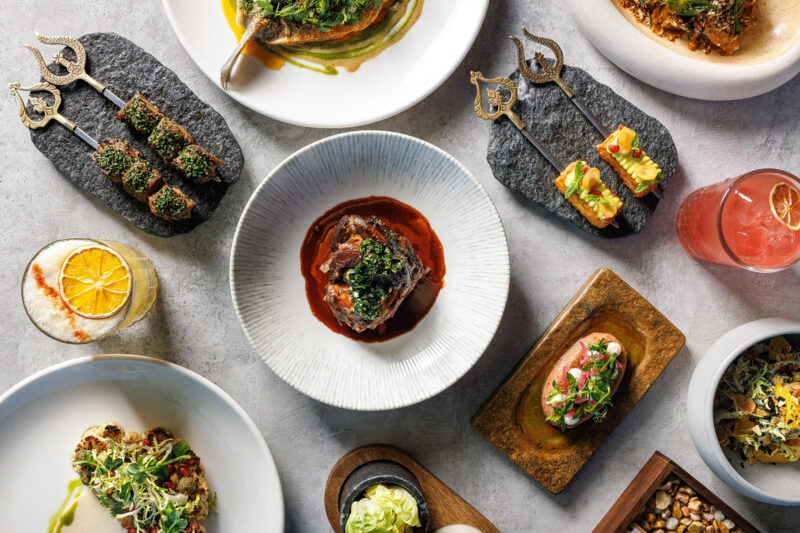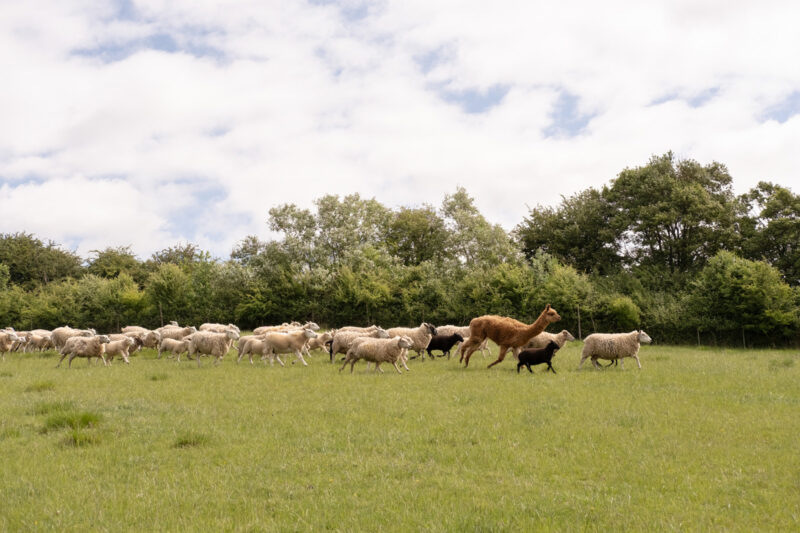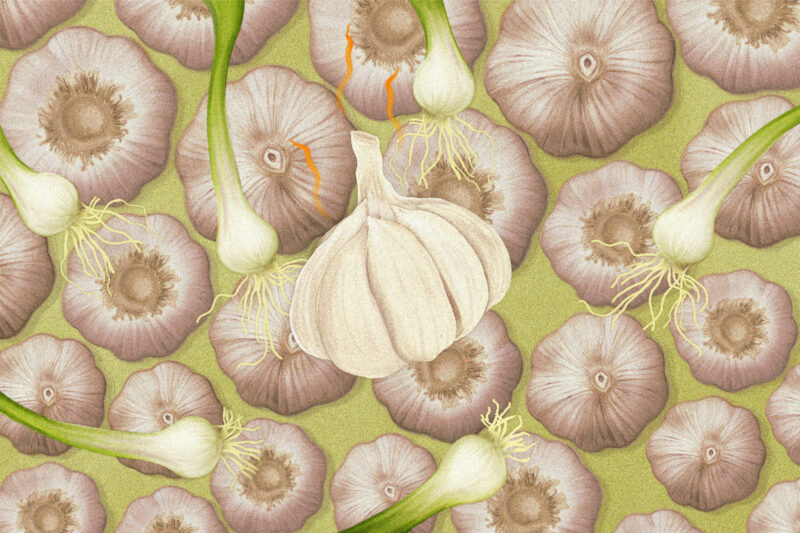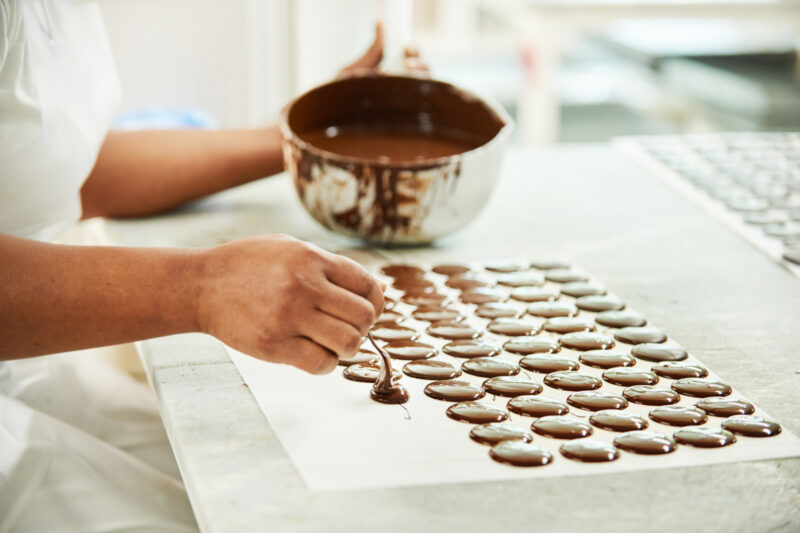English lessons and Ramadan delicacies
A Manchester-based women’s group is using cooking — from Polish dumplings to Syrian sweets — as a gateway to learning
–
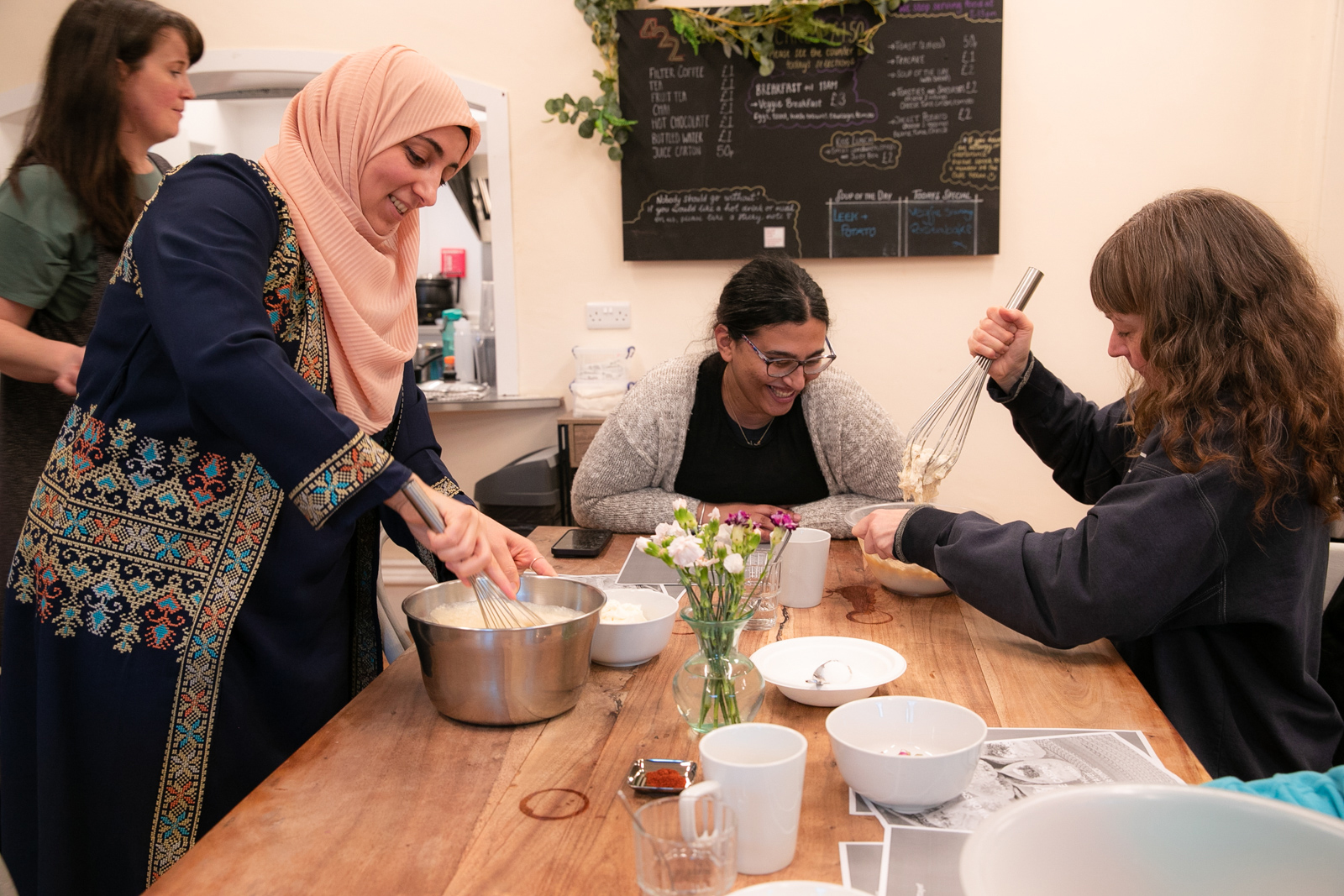
It’s a typically grey and drizzly March evening in Longsight, south Manchester, but the 422 Arts centre on Stockport Road is alive with chatter. Whisks clatter against the sides of mixing bowls and the sweet smoke of Arabian incense wafts around the room. A woman moves from table to table, checks the consistency of the flour and water mixture in front of us and instructs everyone to keep it smooth and thin “like pancake batter”.
I’m at a Ramadan-themed cooking workshop and we’re making atayef — small, ear-shaped desserts that traditionally take a starring role on Syrian iftar tables. Over the course of 90 minutes, we explore the traditions and practices associated with the holy month, and the food and drinks consumed by Syrians at this time of year. Best of all, we get to try a series of delicious dishes, some of which we have prepared ourselves.
The evening has been organised by Heart and Parcel, a local charity that uses food as a gateway to English language learning in Manchester. There are 16 of us in attendance and we’re a pretty diverse bunch, connected to different parts of the world, but all here to learn dishes that are new to us.
Heart and Parcel was founded by Clare Courtney eight years ago. A teacher of English for speakers of other languages (Esol), she returned from working in China in 2015 to discover that funding for adult English education had been slashed by the Conservative government of then Prime Minister David Cameron.
“The situation was really bad. You had to have a certain eligibility, meaning a certain visa, if you wanted to study English,” she explains.
In 2011, the government had introduced a policy whereby only those on jobseeker’s allowance and employability allowance — in most cases men — were eligible for free tuition. As a result, many immigrant women got stuck in volunteer-led classes where they struggled to develop their language skills. According to 2021 census data, more than a quarter of people living in Manchester are born abroad. The city’s biggest immigrant communities typically come from South Asia, the Middle East, and North and West Africa and, English aside, Urdu, Arabic and Polish are the most commonly spoken languages.
With her friend, Karolina Koścień, a sociologist and social worker who moved to the UK from Poland 14 years ago, Courtney decided to create a space where the women could receive English lessons from a qualified tutor, direct their own learning and pick up the kind of vocabulary they needed for everyday life.
The decision to use food as a teaching medium was inspired by Courtney’s experience of learning Mandarin while living in China. She had struggled to absorb vocabulary in formal lessons, where it was delivered out of context, but when she attended dance classes or cooked with friends, the language flowed easily. She realised that engaging in a practical activity while learning helps people to retain and apply skills in other areas of their lives.
Recalling the evenings she had spent chatting and making dumplings with friends in China, for the first session, Courtney decided with Koścień that participants would make sauerkraut and mushroom pierogi as they talked. They chose dumplings because making them is a shared experience: one person rolls the dough, one person fills it and another folds it shut. Twenty women from a range of cultures showed up and the session was an overwhelming success.
Since 2015, Heart and Parcel have put on 253 more classes. They’re generally delivered as courses of four or six sessions. From May, the classes will take place every month. More than 1,143 learners have participated in them, including tonight’s workshop facilitator, Rawia Alawani, who moved to the UK from Syria nine years ago. Although she had studied English while living in Jordan, she had little practice speaking and struggled to communicate in her new life in Manchester.
She explains that when she first heard about the classes organised by Heart and Parcel six years ago, she was sceptical. As a mother of four children, Alawani wasn’t thrilled by the prospect of spending even more time in the kitchen. She also couldn’t see how she could learn English from cooking and eating.
“But I came with five friends and, straight away, Clare started to teach us new vocabulary,” she says. “We were just talking, talking all the time and, just like that, she improved my language. Now, I can understand everything around me.”
While providing free English classes is Heart and Parcel’s primary objective, Courtney is often frustrated by the way immigrant women are judged according to their language skills and their ability to integrate seamlessly into life in the UK rather than “the rich skills and experience that these women have that we aren’t even recognising”.
She and Koścień want to create environments where participants can get to know one another, find common ground between their respective cultures and experiences, and share them with each other and anyone else who might be interested.
In 2017, the Heart and Parcel branched out into supper clubs and cookalongs, like the one I am attending tonight. So far, the supper clubs have been focused on Polish, Chinese, Egyptian and Syrian cuisine. During the pandemic, the cookalongs went online, bringing tutorials on Afghan, Libyan and Bangladeshi dishes straight to people’s homes. Tonight’s event, however, is an in-person affair and Alawani shows herself to be a natural teacher: sparky, warm and funny.
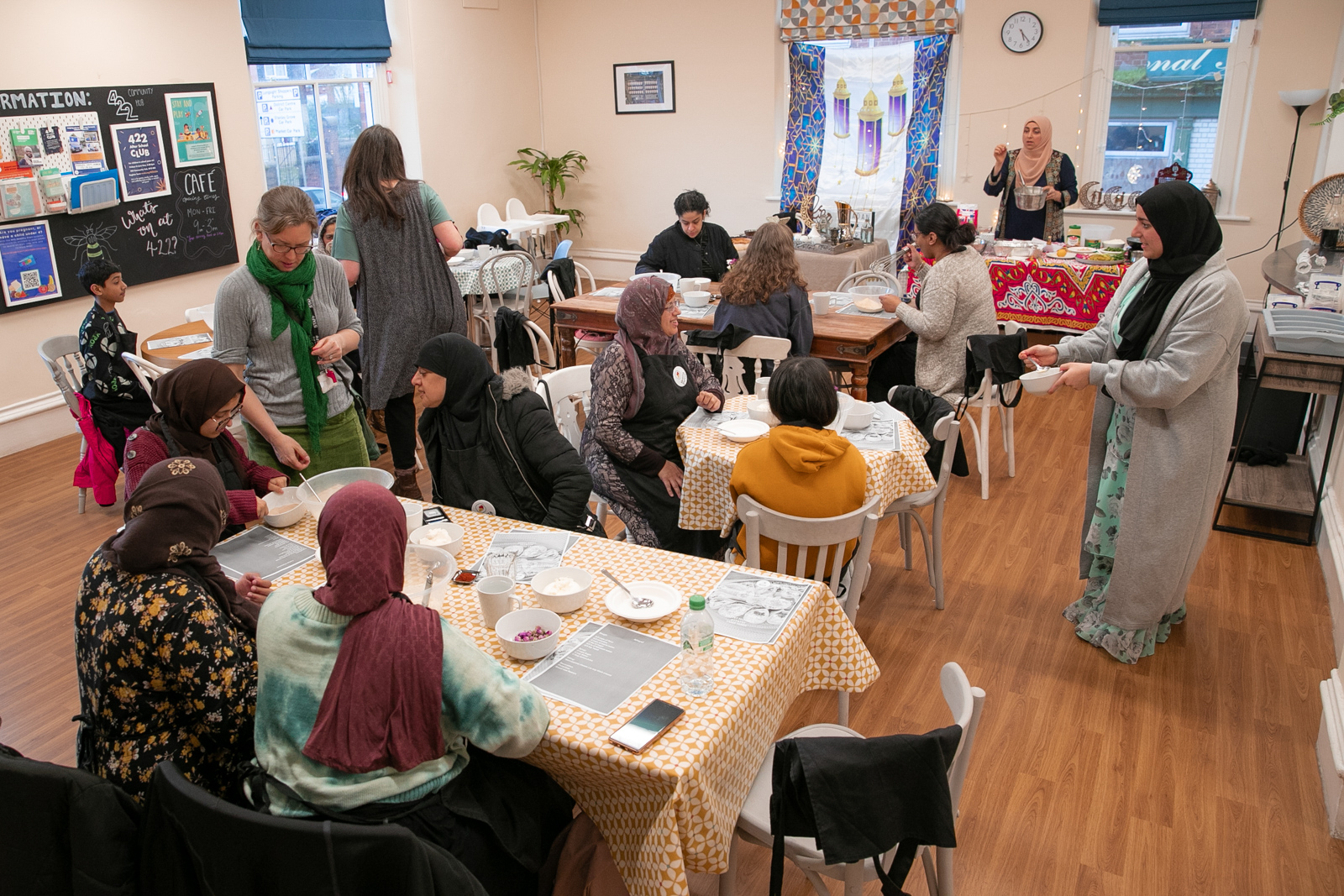
First, we try an unsweetened liquorice drink that she has prepared ahead of time. “It’s only popular with men,” she explains. “I don’t know why, I don’t like it.” Then we learn to squeeze the pulp from a block of tamarind to make tamr hind, a popular Syrian beverage, perfumed with orange blossom. She encourages participants to come forward for a closer look.
Alawani’s confidence is a perfect illustration of what Heart and Parcel is all about: giving the women involved a place to shine, learn, and develop skills and ideas. The group’s supper clubs, for example, offer hands-on catering experience and some participants have since gone on to set up food businesses of their own. Others have taken up paid work with Heart and Parcel itself. Alawani talks effusively of how the organisation has pushed and supported her.
Picking up skills, establishing businesses and building new lives are all part of a frequently advanced and widely accepted narrative of immigration and integration, but Courtney and Koścień believe it isn’t the sole responsibility of newcomers to fit into life in the UK — people already living here must also play their part.
The idea of creating space for dialogue is central to tonight’s Syrian Ramadan workshop, during which Alawani moves seamlessly from cooking demonstrations to talking about the meaning and practices of the holy month. Blending chickpeas, tahini, garlic and lemon into silky hummus, she tells us about the importance of consuming protein when you’ve been fasting all day. We laugh when she shares her shock at having to go without food and water for 20 hours when Ramadan was at the height of the British summer. She then explains how her mother first taught her to fast in three-hour units, and how she did the same when her children were old enough.
It is exactly this mix of culinary discovery and conversation that has drawn in many of tonight’s participants. Dan, 36, has come with his partner, who runs a neurodiversity charity. We talk while folding and pinching the corners of our atayef, filling them with pistachios, rose petals and heavy cream.
“Where we live in Old Trafford, we’ve got a lot of Muslim neighbours,” he says. “We’ve lived there for a year and we’re trying to get to know and actively understand them, to be a part of a community. You turn on the news and see it’s quite divisive out there.”
But there is another — arguably even more interesting — exchange happening here. Heart and Parcel’s classes routinely include women from Syria, Iraq, Pakistan, Bangladesh, Ukraine and Hong Kong. For many, they are a place to temporarily forget about finding their place in British society, learn about each other’s cultures and create a special community of their own. As Heart and Parcel’s mission evolves, Courtney tells me that the organisation is now broadening its remit to include classes for men.
The workshops also provide fertile ground for the swapping of ideas. As we taste the floral, sweet-and-sour tamr hind that Alawani has just prepared, one participant from Egypt comments that she uses dates, not sugar, to sweeten hers.
Alawani’s eyes light up. “I didn’t know this,” she says. “I’ll try it at home.”
All evening, the room hums with voices. The only time we fall silent is near the end, when we stop to eat. Alawani spoons out the fattet hummus that we watched her assemble earlier. It is rich and smooth, with plenty of crunch from a base layer of fried bread and buttery, ghee-fried almonds scattered on top. I cut the richness with a pickled chilli and fresh radishes. Then we stuff ourselves with sweet atayef. The yeasted batter gives these little folded pancakes more chew than their American cousins, but the filling is delicate and creamy. There are low murmurs of approval and promises to recreate the dishes in our own kitchens.
As the few remaining desserts are packed up to be taken home, Alawani and the volunteers begin the arduous task of clearing up. I ask her how she thinks the workshop went. She explains that she always makes her family nervous before such events, then laughs and says: “I’m always worried about my language, but not about my food.”
 Newsletter
Newsletter

